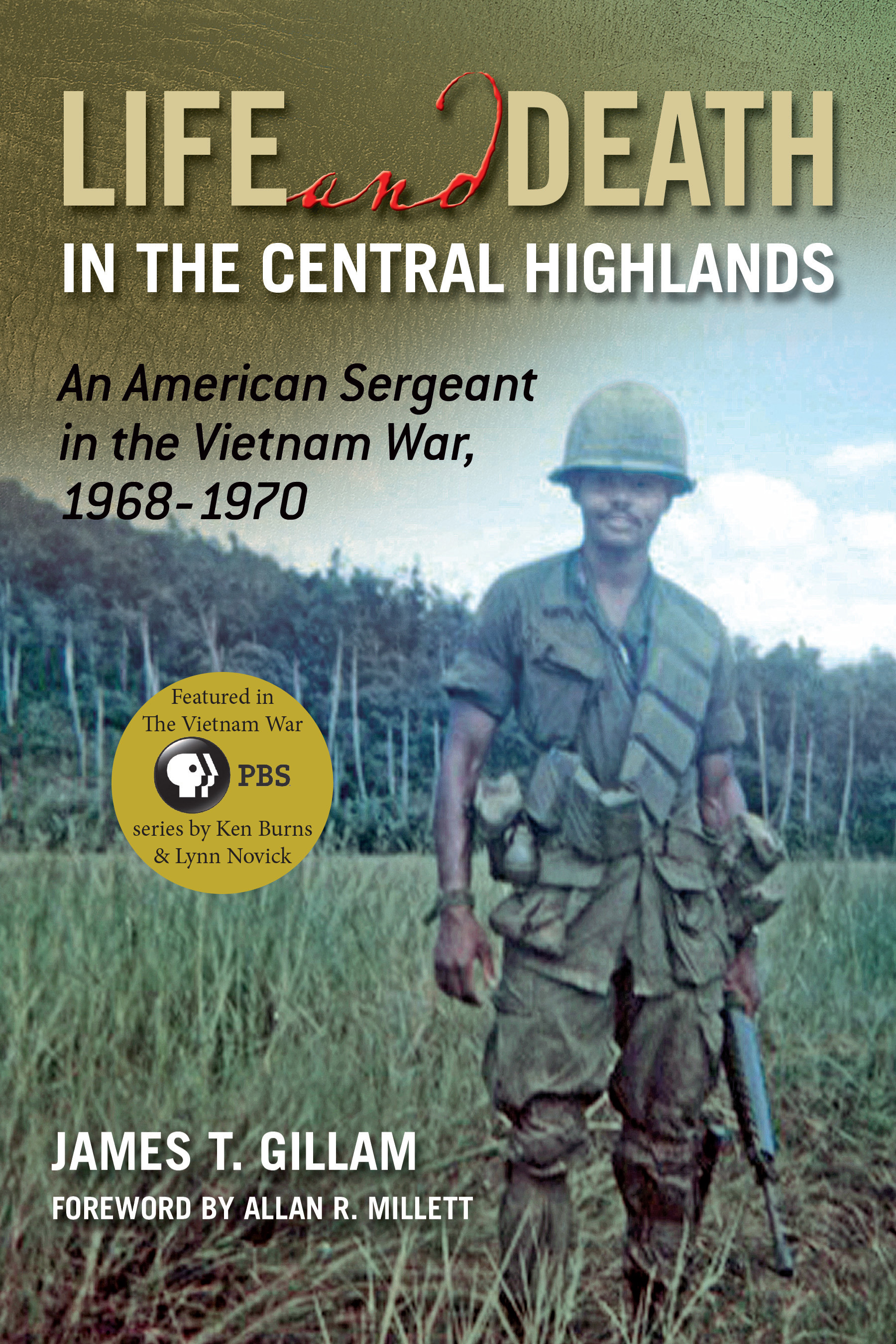In 1968 James T. Gillam was a poorly focused college student at Ohio University who was dismissed and then drafted into the Army. Unlike most African Americans who entered the Army then, he became a Sergeant and an instructor at the Fort McClellan Alabama School of Infantry. In September 1968 he joined the First Battalion, 22nd Regiment of the 4th Infantry Division in Vietnam. Within a month he transformed from an uncertain sergeant-who tried to avoid combat-to an aggressive soldier, killing his first enemy and planning and executing successful ambushes in the jungle. Gillam was a regular point man and occasional tunnel rat who fought below ground, an arena that few people knew about until after the war ended. By January 1970 he had earned a Combat Infantry Badge and been promoted to Staff Sergeant. Then Washington’s politics and military strategy took his battalion to the border of Cambodia. Search-and-destroy missions became longer and deadlier. From January to May his unit hunted and killed the enemy in a series of intense firefights, some of them in close combat. In those months Gillam was shot twice and struck by shrapnel twice. He became a savage, strangling a soldier in hand-to-hand combat inside a lightless tunnel. As his mid-summer date to return home approached, Gillam became fiercely determined to come home alive. The ultimate test of that determination came during the Cambodian invasion. On his last night in Cambodia, the enemy got inside the wire of the firebase, and the killing became close range and brutal. Gillam left the Army in June 1970, and within two weeks of his last encounter with death, he was once again a college student and destined to become a university professor. The nightmares and guilt about killing are gone, and so is the callous on his soul. Life and Death in the Central Highlands is a gripping, personal account of one soldier’s war in Vietnam.












